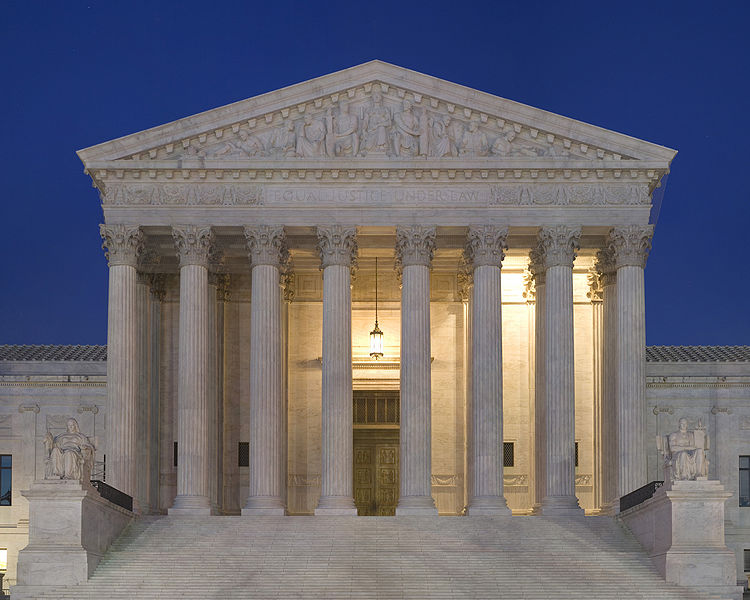
The U.S. Supreme Court added a new case to the merits docket on Friday. As of November 25, 2019, the court had agreed to hear 57 cases during its 2019-2020 term. The Supreme Court began hearing cases for the term on October 7, 2019.
The new case—FNU Tanzin v. Tanvir—concerns the Religious Freedom Restoration Act (RFRA) of 1993. It came on a writ of certiorari to the United States Court of Appeals for the 2nd Circuit.
Muhammad Tanvir, Jameel Algibah, and Naveed Shinwari, three Muslim men born outside of the U.S. but living lawfully inside the country, were approached by FBI agents and asked to act as informants. Citing their religious beliefs, the three men declined. Tanvir, Algibah, and Shinwari alleged the FBI agents then retaliated against their refusal to act as informants by placing them on the national "No Fly List." They sued the agents in their official and individual capacities in U.S. federal court under the First Amendment, the Fifth Amendment, the Administrative Procedure Act, and the RFRA.
The U.S. District Court for the Southern District of New York dismissed the claims against the agents in their individual capacity. Tanvir, Algibah, and Shinwari appealed to the U.S. Court of Appeals for the 2nd Circuit, which reversed the lower court's ruling. FBI Special Agent FNU (First Name Unknown) Tanzin moved for the circuit court to rehear the case en banc, but the circuit court denied the motion. Tanzin then petitioned the U.S. Supreme Court for a hearing.
In his petition to the U.S. Supreme Court, Tanzin argued, "The court of appeals’ anomalous ruling clears the way for a slew of future suits against national-security officials, criminal investigators, correctional officers, and countless other federal employees, seeking to hold them personally liable for alleged burdens on any of the myriad religious practices engaged in by the people of our Nation."
The question presented in the case, according to the petition, is "whether the provision in RFRA allowing litigants to 'obtain appropriate relief against a government,' 42 U.S.C. 2000bb-1(c), authorizes an award of money damages against federal employees sued in their individual capacities."
The case has not been set for argument before the court.


